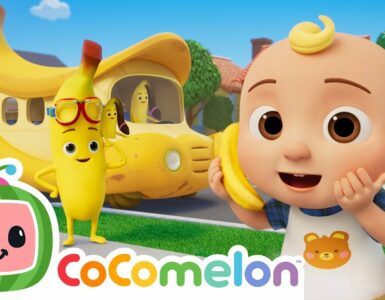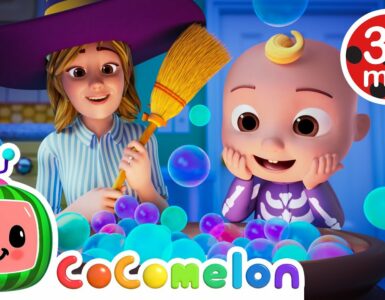“Johny Johny Yes Papa Nursery Rhymes & Kids Songs” are beloved staples in the musical education of toddlers and young children. These entertaining songs not only provide a source of joy but also offer essential learning opportunities through fun and engaging lyrics. In this article, we will explore the enchanting world of children’s music, with a special focus on the song “Johny Johny Yes Papa,” its significance, and how it fits into the broader landscape of nursery rhymes and kids’ songs.
The Origins and Evolution of Nursery Rhymes
Nursery rhymes have been part of children’s culture for centuries. Their origins are often steeped in history, reflecting the society and values of their time.
The Historical Context of Nursery Rhymes
Nursery rhymes can be traced back to the early 17th century, though many have roots that go even deeper. They were traditionally passed down orally from generation to generation. As societies evolved, these songs transformed, adapting to modern sensibilities while retaining their playful charm.
The nursery rhyme “Johny Johny Yes Papa” is no exception. It has become one of the most recognizable songs for children globally, showcasing the universal appeal of simple melodies and relatable themes—particularly those involving family dynamics, which resonate deeply with young listeners.
More: ChuChu TV The Colors Song – RED – ChuChu TV
Cultural Variations and Adaptations
Around the world, nursery rhymes take on different forms, with local cultures infusing their flavors into familiar tunes. For instance, the concept of playful deceit or mischievous behavior, as portrayed in “Johny Johny Yes Papa,” can be found across various cultures under different names and narratives.
In some Asian cultures, similar stories explore the relationship between parents and children, emphasizing moral lessons about honesty and trust. This adaptation illustrates how core themes of tenderness and morality transcend cultural boundaries, making nursery rhymes an integral part of child-rearing practices everywhere.
The Influence of Technology
In today’s digital age, technology has significantly impacted the way children interact with nursery rhymes and kids’ songs. Platforms like YouTube have made accessing a wide array of educational content easier than ever, leading to a resurgence in the popularity of classic tunes like “Johny Johny Yes Papa.” Animated videos add a visual component that captures children’s attention, enhancing their engagement and retention of the material.
The availability of diverse renditions—from traditional folk versions to contemporary pop adaptations—invites children and parents alike to explore and enjoy these timeless melodies together, creating shared experiences that strengthen familial bonds.
The Significance of “Johny Johny Yes Papa”
“Johny Johny Yes Papa” holds a significant place in children’s music, acting as both an entertaining story and a teaching tool that imparts fundamental life lessons.
Understanding the Lyrics and Themes
At its core, “Johny Johny Yes Papa” tells a humorous tale of a young boy caught in a playful lie. The lyrics convey a lighthearted scenario where Johny sneaks sugar without his father’s knowledge. The catchy refrain allows for easy participation, making it a favorite among toddlers who love to echo the responses.
This simple story conveys moral values such as honesty and accountability, helping children understand the importance of transparency in relationships. By framing these concepts within an engaging narrative, it facilitates discussions about right and wrong in a way that’s accessible and enjoyable for young minds.
The Role of Repetition in Learning
Repetition plays a crucial role in reinforcing learning, especially for children. The repetitive nature of the song encourages listeners to memorize lyrics easily. Each repeat of the phrase “Johny Johny, yes papa?” reinforces the interaction between Johny and his father, solidifying the relational dynamics in their dialogue.
Moreover, the rhythm and rhyming scheme make it easy for children to predict the next lines, fostering confidence in their ability to participate in singing. This predictive quality stimulates cognitive growth and enhances linguistic skills, proving that entertainment and education can indeed go hand-in-hand.
Creating Bonds Through Musical Interaction
Singing nursery rhymes is an interactive practice that invites parental involvement. When parents sing along, it creates a shared experience rich with emotional connection and bonding opportunities.
Engaging with children through music fosters an environment of trust and warmth. Playing “Johny Johny Yes Papa” during family time incorporates laughter and joy, making it a cherished memory for both parents and their little ones. Additionally, singing together helps develop social skills, as children learn to listen, respond, and engage in turn-taking during conversations.
The Educational Value of Nursery Rhymes
Nursery rhymes serve as powerful educational tools, laying the groundwork for language development, critical thinking, and emotional intelligence in children.
Language Development and Phonetics
One of the primary benefits of nursery rhymes is their capacity to aid in language acquisition. Singing songs like “Johny Johny Yes Papa” introduces children to phonetics, vocabulary, and sentence structure in a playful manner.
The rhythmic patterns and melodic tones enhance auditory processing skills, allowing children to discern sounds and syllables more effectively. As they sing along, they also practice pronunciation and articulation, expanding their verbal repertoire.
Cognitive Skills and Critical Thinking
The playful scenarios presented in nursery rhymes stimulate children’s imaginations and promote critical thinking. Engaging with a tune that showcases consequences—like Johny getting caught after sneaking sugar—encourages children to think about choices and outcomes.
Through discussions prompted by the lyrics, caregivers can encourage kids to express their thoughts, analyze situations, and explore the reasoning behind their decisions. This analysis fosters analytical thinking and nurtures problem-solving skills that will benefit them throughout their lives.
Emotional Intelligence and Social Skills
Songs like “Johny Johny Yes Papa” not only entertain but also teach vital lessons about emotions and relationships. The interactions within the song highlight feelings of guilt, love, and forgiveness, providing children with valuable insights into emotional awareness.
By navigating the complexities of relationships through musical storytelling, children learn to empathize with others. The playful nature of the song allows for open conversations about mistakes and forgiveness, promoting resilience and emotional intelligence while reinforcing the idea that it’s okay to make errors and learn from them.
Incorporating “Johny Johny Yes Papa” into Daily Routines
Integrating songs like “Johny Johny Yes Papa” into everyday activities can enrich children’s experiences and create joyous moments.
Morning Routines Made Fun
Transforming mundane tasks into delightful experiences can be achieved through music. Imagine starting the day with a cheerful rendition of “Johny Johny Yes Papa” while brushing teeth or washing hands. The repetitive rhythm makes routine behaviors more engaging and gives children motivation to complete their morning tasks.
Additionally, using the song as a cue for transitions can help children learn about the flow of daily activities. For instance, you might sing the song before moving from breakfast to playtime, giving them a sense of structure while keeping things light-hearted.
Storytime and Imaginative Play
To further enrich the experience of “Johny Johny Yes Papa,” consider incorporating it into storytime or imaginative play. You can create a storytelling session where you act out the song’s narrative, using props or puppets to bring Johny and his father to life.
This immersive experience will captivate children’s imaginations while reinforcing understanding of the song’s themes. Allowing them to engage creatively promotes their cognitive development and strengthens their storytelling abilities.
Celebrating Special Moments with Song
Whether it’s birthdays, holidays, or family gatherings, integrating “Johny Johny Yes Papa” into celebrations adds a personal touch. Gather family members and create a sing-along moment that fosters togetherness and joy.
These musical traditions create lasting memories, reminding children of the love and happiness within their families. The infectious spirit of the song can uplift moods and create an atmosphere of celebration, marking special occasions with warmth and laughter.
Conclusion
“Johny Johny Yes Papa Nursery Rhymes & Kids Songs” hold a special place in the hearts of children and their families. As we’ve explored throughout this article, these joyful melodies do much more than simply amuse; they serve as foundational building blocks for language acquisition, social skills, and emotional intelligence.
The rich history of nursery rhymes illustrates their enduring relevance, while the integration of technology ensures that these timeless tunes continue to resonate with new generations. By embracing the power of music in daily routines, we can foster meaningful connections and enhance the developmental journey of our children.
Ultimately, “Johny Johny Yes Papa” exemplifies the magic of nursery rhymes—bringing joy, laughter, and valuable lessons into the lives of children everywhere. So let us celebrate these delightful melodies and keep singing, for every note is a step in nurturing our little ones’ growth and happiness.

















